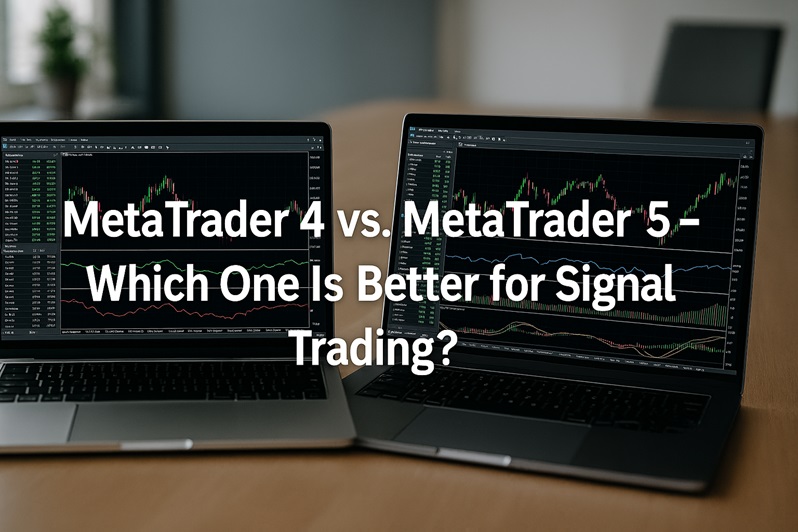
When it comes to trading platforms, MetaTrader 4 (MT4) and MetaTrader 5 (MT5) dominate the Forex world. Both platforms have earned strong reputations, but signal traders often find themselves torn between the two. Whether you’re just getting started or refining your strategy, choosing the right platform for signal trading can make a significant difference.
Platform Overview: MT4 vs. MT5
MetaTrader 4 has been a long-standing favorite among retail traders due to its simplicity, speed, and robust ecosystem. It was built primarily for Forex trading and offers an extensive library of indicators and expert advisors (EAs). MT4’s straightforward interface and wide broker support make it an accessible choice.
MetaTrader 5, on the other hand, is a more advanced platform. It supports a broader range of asset classes including stocks and futures, features faster processing, and offers an economic calendar and more order types. MT5’s built-in strategy tester is more powerful, making it appealing for algorithmic signal trading.
Signal Integration and Execution
In terms of integrating trading signals, both platforms allow automated and manual execution. MT4 offers a massive marketplace for EAs and copy trading services, making it a go-to for many who rely on established signal providers. MT5 has improved scripting capabilities with the MQL5 language, which allows for more advanced signal logic and performance.
MT5 also includes a native signal service that is more transparent and user-friendly, allowing users to evaluate signal performance directly from the terminal. For traders who prefer a seamless signal subscription process with more metrics, MT5 edges ahead.
Flexibility and Compatibility for Traders
MT4 remains the industry standard for most signal services, especially those focusing solely on Forex. Because of its longevity, MT4 benefits from a vast community, better backward compatibility with older indicators, and widespread broker adoption.
MT5 is growing in popularity and may become the dominant platform in the future. For traders interested in diversifying or building more complex signal systems, its extended functionality can be a strong advantage. However, not all brokers offer MT5, and some third-party signal providers still prioritize MT4.
Conclusion
MetaTrader 4 is still a strong contender for Forex signal trading, particularly if you’re looking for a simple, time-tested platform with broad compatibility. MetaTrader 5, however, offers a more modern experience with better tools for analysis, automation, and signal integration. The better platform ultimately depends on your trading goals and whether you prioritize ease of use or cutting-edge functionality.
Ready to test your strategy? Choose the platform that aligns with your needs and start trading smarter today!
FAQs
What are the main differences between MT4 and MT5?
MT4 is simpler and focused on Forex; MT5 offers more advanced tools and supports multiple asset classes.
Which platform is better for beginners?
MT4 is generally easier for beginners due to its intuitive interface and extensive community support.
Is MT5 better for automated trading signals?
Yes, MT5 offers more powerful automation tools and improved performance tracking.
Can I switch from MT4 to MT5 easily?
Switching platforms requires setting up a new account and adapting to a different interface, but most brokers support both.
Do most signal providers support MT5?
MT4 still dominates, but MT5 support is growing among modern signal providers.
